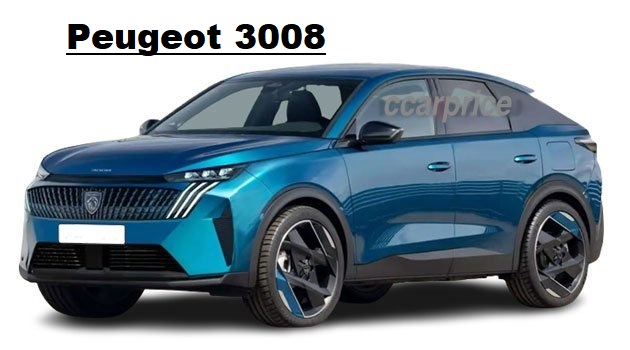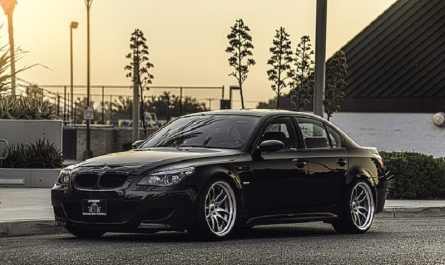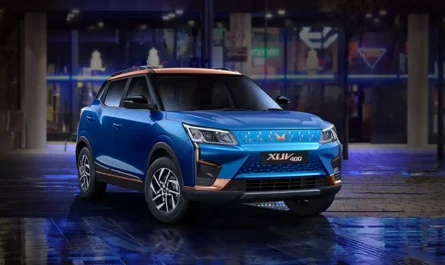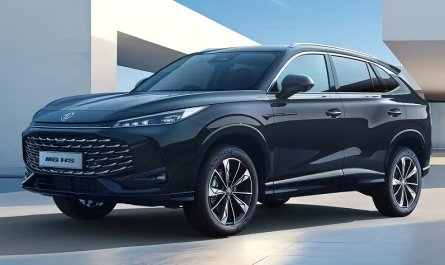The automotive industry is undergoing a massive shift toward electric vehicles (EVs), with manufacturers vying to dominate this emerging market. However, amidst the buzz around EVs, Peugeot has quietly released a petrol version of its new 3008 model, offering an intriguing alternative to its electric counterpart. This raises a compelling question: does the petrol-powered 3008 stand a chance against its high-tech electric sibling? Let’s explore the features, design, performance, and overall value of the petrol Peugeot 3008 to help you decide which version suits your needs best.

Introduction to the Peugeot 3008
Peugeot’s 3008 has long been a standout in the compact SUV segment, known for its striking design, innovative technology, and versatile performance. With the latest release, the French automaker introduced the electric e-3008, boasting cutting-edge features and an impressive range. At a steep price of £45,000-£50,000, however, the electric version remains out of reach for many potential buyers. Enter the petrol-powered 3008, a more accessible alternative starting at a relatively affordable £35,000. This petrol version bridges the gap between cost-conscious consumers and the allure of Peugeot’s latest design.
Key Differences: Petrol vs. Electric
The petrol Peugeot 3008 features a 1.2L engine, offering a simpler, more traditional driving experience compared to the electric e-3008. Here’s a detailed comparison of the key specifications:
| Feature | Petrol 3008 | Electric e-3008 |
|---|---|---|
| Starting Price | £35,000-£38,000 | £45,000-£50,000 |
| Engine | 1.2L Petrol | Electric Motor |
| Range | Approx. 500 miles | 380 miles per charge |
| Horsepower | 136 HP (combined hybrid) | 156 HP |
| Wheels | 19-inch | Up to 20-inch |
| Boot Space | 525L | Reduced due to battery |
While the petrol version sacrifices some eco-friendly appeal, it compensates with affordability, longer range, and straightforward practicality, making it a strong contender for those who prioritize cost and convenience.
Exterior Design and Styling
Peugeot’s latest 3008 represents a significant evolution in its design philosophy, adopting a sleek, coupe-inspired silhouette that enhances aerodynamics and visual appeal. Here are the standout features of the new design:
- Modern Aesthetics: The vehicle’s sleek lines are complemented by Matrix LED headlights and signature claw-like LED accents that give it a futuristic look.
- Customizable Colors: Standard Obsession Blue is striking, while premium gray paint (£750) offers a sophisticated alternative.
- Enhanced Aerodynamics: At 4.54 meters in length, the longer body contributes to better airflow and improved efficiency.
However, the stylish coupe-inspired roofline comes with a trade-off. Taller rear-seat passengers may find the headroom less accommodating, making it slightly less family-friendly than some competitors.
Interior Features and Technology
Peugeot continues its tradition of delivering premium interiors, and the 3008 is no exception. The cabin is designed to impress, offering advanced technology and a comfortable atmosphere. Key highlights include:
- Floating 21-inch Screen: This futuristic feature splits functionality between a touchscreen infotainment system and a digital dashboard, integrating wireless Apple CarPlay and Android Auto for seamless connectivity.
- i-Toggles: These customizable shortcut buttons allow users to access frequently used functions effortlessly.
- Cabin Comfort: High-quality cloth upholstery, ambient lighting, and advanced soundproofing create a cozy environment.
- Connectivity Options: Multiple USB ports, wireless charging, and ample storage spaces cater to modern needs.
| Interior Feature | Details |
|---|---|
| Infotainment | Wireless CarPlay & Android Auto |
| Sound System | 10-speaker Focal sound system (690W) |
| Customization | i-Toggles for personalized controls |
| Storage | Spacious bins and cup holders |
Despite these perks, the interior is not without its drawbacks. The half-size glovebox limits storage and touch-screen temperature controls may distract drivers.
Performance and Handling
The petrol-powered 3008 is equipped with a mild hybrid system, pairing a small 22-horsepower electric motor with the 1.2L petrol engine. While it’s not a full hybrid, this setup marginally boosts fuel efficiency and enhances the driving experience. Performance highlights include:
- Power Output: The combined system delivers 136 HP, sufficient for city commutes and highway drives.
- Acceleration: With a 0-60 mph time of around 10 seconds, the petrol version is not a speed demon but offers adequate responsiveness.
- Ride Comfort: Thanks to a well-tuned suspension, the 3008 delivers smooth handling with minimal body roll.
- Visibility Challenges: The sloping roofline adds style but creates blind spots, slightly impacting rear visibility during maneuvers.
Practicality: Boot Space and Rear Seats
Practicality is a strong suit of the petrol-powered 3008, albeit with a few limitations. The boot offers a generous 525L capacity, featuring a no-load lip and additional underfloor storage. This makes it ideal for families or road trips. However, the coupe-like roofline compromises rear-seat space slightly, as taller passengers might find headroom lacking. Additionally, accessing Isofix points for child seats can be a bit cumbersome.
Conclusion
The petrol-powered Peugeot 3008 stands out as a well-rounded, cost-effective alternative to its electric sibling. Key advantages include:
- Affordability: With a significantly lower price point, the petrol version makes the latest 3008 more accessible.
- Practical Features: Ample boot space and a well-equipped interior add to its appeal.
- Stylish Design: Its modern aesthetics set it apart in the competitive compact SUV market.
That said, its compromises in rear-seat space and limited hybrid capabilities might deter some buyers seeking a more advanced or family-oriented vehicle. Ultimately, the petrol Peugeot 3008 is a compelling choice for those who value affordability, practicality, and style without fully committing to electrification.


